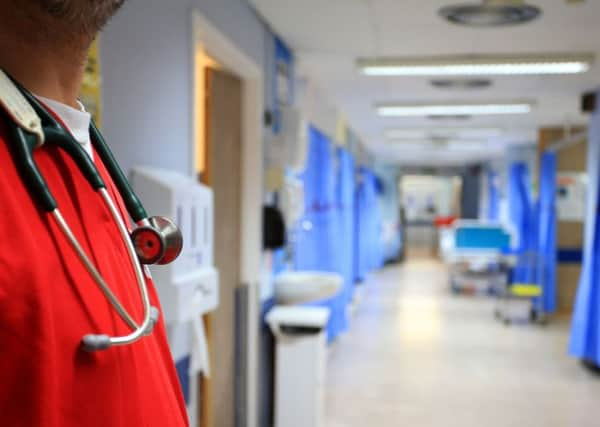Nicola Blackwood: How NHS embracing technology can save lives


Next year is the 200th anniversary of the birth of Florence Nightingale. Few will think of her as an early data scientist but she pioneered analysis of large amounts of statistical data, using graphs and tables, regarding the condition of thousands of patients in the Crimean War to evaluate the efficacy of hospital services. And her methods proved convincing enough to reform services in military and civilian hospitals saving countless lives.
During the US Civil War, the Sanitary Commission collected enormous amounts of statistical data and reported some very 21st Century problems of storing information for fast access and analysis. So a resourceful surgeon, John Shaw Billings, built the Library of the Surgeon General’s Office and figured out how to mechanically analyse medical and demographic data by turning facts into numbers and punching the numbers onto cardboard cards that could be sorted and counted by machine.
Advertisement
Hide AdAdvertisement
Hide AdThe applications were developed by his assistant Herman Hollerith who invented the punch card and counter-sorter system that dominated statistical data manipulation until the 1970s.
Hollerith’s company became IBM in 1911.
In other words, it has never been possible to make progress in medical research without getting health data right – the difference today is we have the tools to deliver at scale, ethical and affordable digital solutions to health data problems that these unsung heroes of medical statistics could never have dreamed of.
A digitally enabled NHS will be the cornerstone upon which sustainable, high-quality services, fit to face the challenges of another 70 years, will be built turbocharge our life sciences and health research ecosystem, and empower patients in a way never possible until now.
Now anyone with a digitally enabled friend or relative in their 70s will know that it is an unpredictable business. The iPhone – no problem, Netflix – bring it on.
But mobile banking, perhaps – a complete mental block.
Advertisement
Hide AdAdvertisement
Hide AdAnd so it is for our NHS, as it approaches its 71st birthday. We are seeing pockets of simply brilliant digital innovation but, let’s be honest, some remaining pockets of reluctance.
The most important part of the digital innovation landscape is the patient. The lives of patients across the country will be profoundly improved by digital technology.
Whether it is the NHS app helping them to keep track of their health records and interactions with the NHS or wearable technology that helps monitor a patient’s health in an ever more sophisticated way.
But we must be very clear – we do not have a right to patients’ data, or their engagement in our digital programmes and activities. We must earn this by gaining and retaining their trust.
Advertisement
Hide AdAdvertisement
Hide AdOur responsibility as an internationally trusted health and care system is to use all the tools at our disposal to improve the quality and safety of care, including data-driven technologies, in a safe, ethical, evidenced and transparent way.
For this reason, we have developed our 10 principles in a code of conduct to enable the development and adoption of safe, ethical and effective data-driven health and care technologies.
While data-driven health and care technologies will undoubtedly deliver huge benefits to patients, clinicians, carers, service users and the system as a whole, it is our duty to capitalise on these opportunities responsibly.
Just to show what can be achieved when we work together, 40,000 people have now registered on Join Dementia Research. Eleven thousand participants have already taken part in research as a result of registering with Join Dementia Research, meaning that it is already linking people up with research and making a valuable contribution to dementia research.
Advertisement
Hide AdAdvertisement
Hide AdThe people choosing to register choose what information to share and which research opportunities they want to take up, and stay in control of managing their accounts. It is a digital service, working through a website, supported by charity helplines.
This is a fantastic example of what we can achieve together – a collaboration between research charities, researchers, and people living with a condition, their carers and others who simply want to help drive dementia research forward.
Realising the vision of a fully digitised NHS is a challenge. But Florence Nightingale and John Shaw Billings faced technical, social and structural barriers to the reforms that they introduced. They did not let that stop them because lives depended on it. The same is true of us today.
Health Minister Nicola Blackwood spoke at a Delving Into Digital event. This is an edited version of her speech.